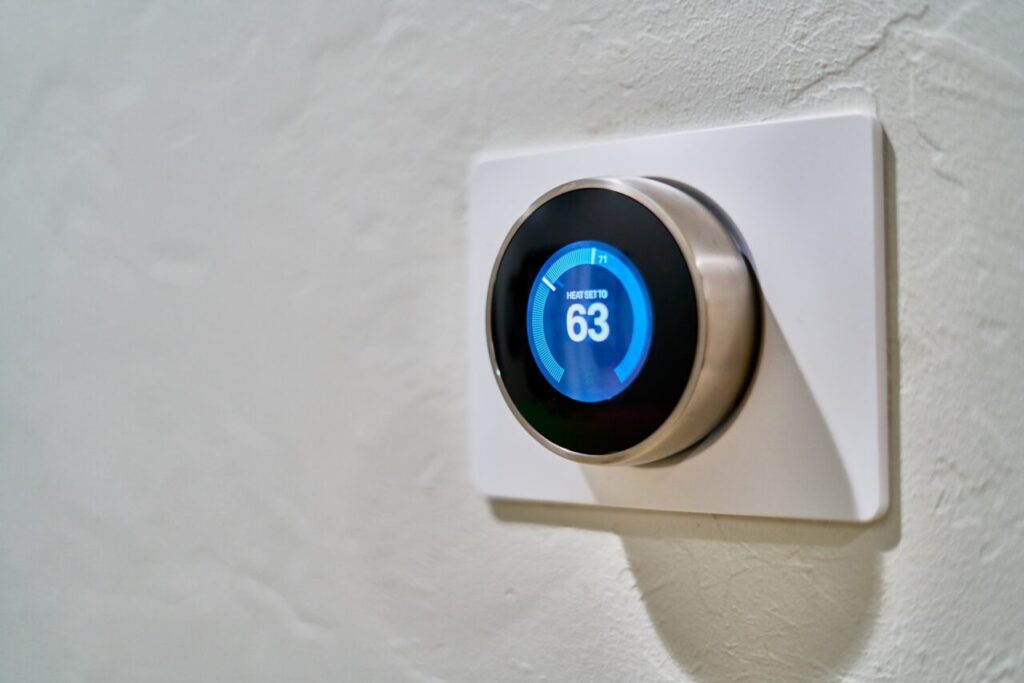
Not so long ago, only the military, the scientists, and the biggest tech-companies had access to artificial intelligence (AI) technologies. Today, AI has made its way into our phones, offices, cars, and homes. AI is having a profound impact on many facets of our lives, and that includes home security.
Home Automation Is More Accessible and More Advanced Than Ever Before
Technologies such as Google Nest and Google Assistant are transforming households around the world. For instance, a smart home system can determine when the house is and when it isn’t occupied. When you’re home, it will automatically set the heating or AC to your ideal temperature. When you’re not at home, it can turn off the heating or the AC in order to save energy.
But home automation doesn’t serve just to make doing things around the house easier, even though that was the initial idea. An AI smart home system can use home automation features to improve your security.
How? Essentially, an AI smart home system can use the same trick as many homeowners do—keeping the lights on when there’s no one home to deter burglars. But, AI smart home systems have elevated it to a much more sophisticated level.
An AI home security system can learn your daily routines (when you turn the lights on and off, how long you watch TV, when you listen to music, when you draw the shades) and use home automation to mimic your activity when you are away. Thanks to AI, home automation can significantly enhance home security.
And, not only can Amazon’s Alexa and Google Assistant devices activate security systems, lights, and gadgets in one’s home, but companies are also increasingly relying on such intelligent voice assistants to improve security in the workplace as well as enhance the employee experience.
Improvements in Home Security
Companies such as Facebook and Apple use AI in the form of facial recognition. One uses it to help you tag people on photos and the other to help you protect your Apple devices. Smart home systems use similar deep learning technology to tell the difference between people living in the house, their guests, and intruders.

For instance, an AI security system could recognize family members and familiar friends via the front door camera and automatically let them in.
An AI home security system could also learn a family’s daily routine. This makes it easier for the system to differentiate between suspicious and normal events. Thanks to data-driven deep learning, AI home security systems can significantly reduce false alarms.
And, when the threat is real, some AI home security systems can autonomously notify emergency services. This feature is new and not yet common, but, eventually, it will offer better response times than even the best home monitoring service operators. Costly home monitoring plans, where remote security experts stand by 24/7 in case of a home intrusion, could be on their way out.
AI Home Security and Home Insurance
By improving your home security, AI can make home insurance much more affordable. According to the National Council for Home Safety and Security, a home without a security system is three times more likely to be burglarized than a home with a security system.
Insurance companies know that there’s less chance a customer will file a claim if their home has an advanced security system. Not only do AI home security systems allow insurers to save money, but many insurance companies pass those savings on to the homeowners.
A homeowner that takes advantage of an advanced, AI-powered home security system can get their home insured for less. For instance, Hero Labs, a London-based tech start-up, created an insurance platform that rewards customers with reduced premiums for having installed advanced, smart security devices in their home.
In fact, many insurers themselves are using AI to power insurance automation and improve the customer experience. We can expect to see more cases of homeowners and insurance companies collaborating to protect their homes with AI solutions and machine learning methodologies.
Privacy Concerns
Since most smart home security systems use cameras and microphones, there have always been some privacy concerns associated with them. Alexa is always listening, and Google Nest is always watching. Many homeowners refuse to buy into this technology out of fear that hackers could break into it and spy on them.
The introduction of AI adds another layer to the issue. AI is data-driven. In order to learn and improve, it collects sensitive information about homeowners’ daily habits.
AI home security systems are connected to the internet, the network of the company that makes them, as well as personal computers and smartphones of the homeowners. If a hacker breaks into the network to which your AI home security system is connected, they could gain access to confidential user information.

